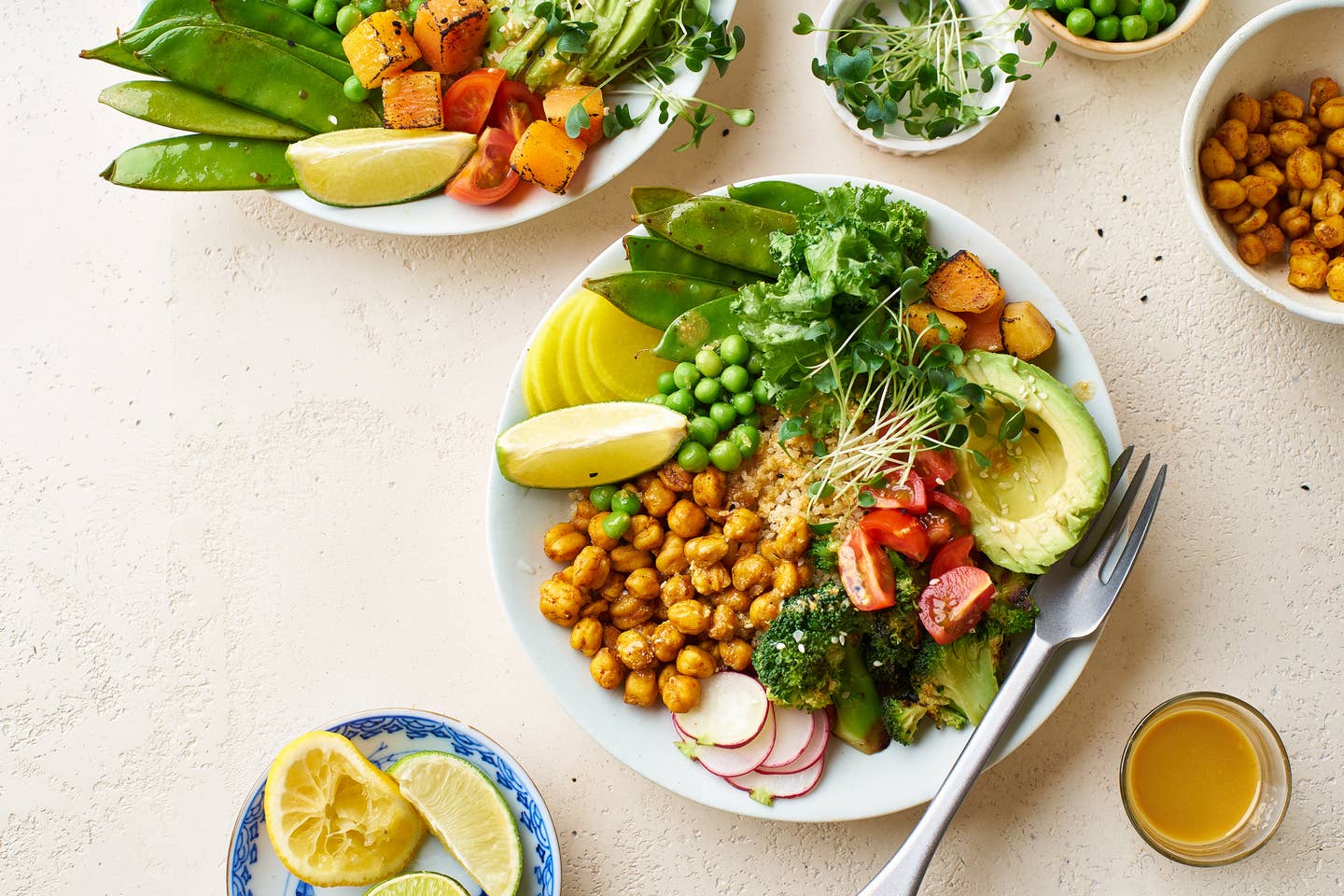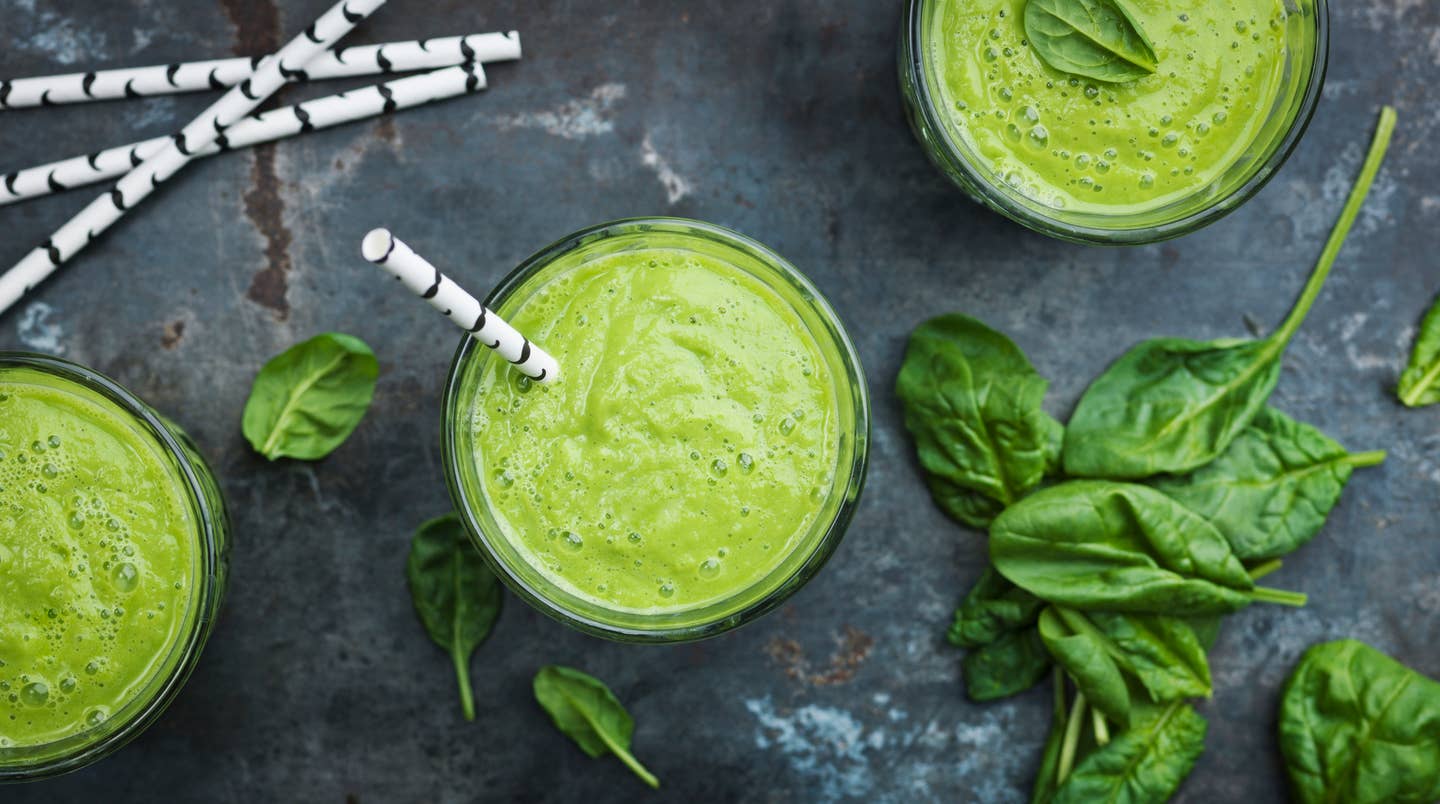
7 Tips to Crush Your New Year’s Goals, from Nutritionists
The New Year is a blank slate for starting over and giving yourself a fresh start on goals big and small. This year, many are making a commitment to eat plant-based for health and well-being and enhanced immunity. As Rhyan Geiger, RDN owner of Phoenix Vegan Dietitian, puts it, “Starting a New Year's resolution can be exciting, but may also become difficult after the first week.”
Whether you’re simply doubling down on your efforts to stay plant-strong into the new year or totally new to the plant-based world, we’re here to help you ace all your healthy eating objectives, and beyond. Here are seven tips to reach those goals, from nutritionists who know.
How to Achieve Your New Year's Resolutions
1. Set Realistic Goals
Taking on too much from the outset is going to set you up for failure, and between all those awesome Zoom yoga classes you’ve signed up for and those green smoothies you’ve been whipping up each morning, ain’t nobody got time to flop.
“To get started think of your overall goal (i.e., lose 10 pounds) and start with small steps that directly impact that goal such as drinking less soft drinks or doing more physical activity,” says Geiger, who stresses narrowing down on as realistic a goal as possible – that is, something that’s a bit of a challenge, but still within reach.
2. Identify What You Need to Succeed
“This seems simple but is a step that is often overlooked by many of the clients that I’ve worked with,” comments Sheri Vettel, RD, at the Institute for Integrative Nutrition based in New York City. (FYI: Vettel follows a primarily plant-forward diet, only consuming the occasional fatty fish for the omega 3-fatty acids.)
“For instance, if you’d like to begin eating more plant-based, reflect on what skills and tools you’ll need to ensure your success. This might include taking a [plant-based] cooking class, listening to plant-forward podcasts, or investing in a few new cookbooks or a new kitchen appliance.”
Better yet, check out The Beet’s Beginner's Guide to a Plant-Based Diet and team up with us on the journey to better health today.
3. Hold Yourself Accountable
“For accountability, find a way you like to keep track of your progress. Use a journal, app, a friend, or join a Facebook group,” offers Geiger. “In whichever way you find motivation use that to your advantage this year.”
If you’re doing Veganuary, try putting a “V” with a circle around it on a wall calendar for every day you successfully stick to your plant-based eating plan. You’d be amazed at how much of a positive jolt seeing all those “V”s lined up will give you. So much so, you may very well decide to keep the party going into February.
4. Don't Abandon Your Goal
Caved and ordered late-night pizza when you vowed to nix dairy? Skipped a day in your 30-day yoga challenge? Forgot to meditate yesterday? Don’t sweat it.
“Remember that not every day will be perfect and it's about making positive changes overall,” offers Geiger. “If you feel you are losing motivation or lost track of your goal, reframe and focus and pick it back up where you left off. Don't wait until tomorrow.” Just because you had that ‘za doesn’t mean tomorrow isn’t a new day to recommit to your resolution.
5. Center Your Goal Around Variety
If you’re looking to make the most of your New Year’s dreams, honing in on an objective that involves some variety may prove a welcome strategy. For Vettel, this ethos applies to the realm of meal planning: “Set a goal around variety to keep meals interesting! Place a comprehensive list of fruits and vegetables on your fridge or wherever it’s convenient for you,” Vettel suggests.
“Keep a tally next to each type of produce when you buy it and use this as a guide to purchase and prepare a variety of fruits and veggies each week.” We love that idea, and this concept of variety works beyond your plate, too. If you’re setting out to read more books, curling up with tomes in a host of different genres might help you make that goal stick.
If you’d like to exercise more (read: at all), mixing things up between yoga, pilates, weight lifting, cycling, jogging, and more, is likely to be more appealing and attainable than doing the same workout routine every day (at least when you’re new to exercise and looking to find the types that you like best).
6. Be Kind to Yourself
Especially during these turbulent and uncertain times, beating yourself up is a recipe for falling off the course.
“When we set a resolution, we are telling ourselves that we will or will not do something. This creates space for self-judgment when we feel that we’ve ‘fallen off the wagon.’ If there’s anything that the current pandemic has taught many of us, it's that there is extreme importance in being gentle with and taking care of ourselves,” advises Vettel. “This extends well beyond the ideas of physical nourishment. If we find it emotionally difficult to maintain our resolutions around the foods we wish to put in our body, this takes away from the health benefits that we were trying to achieve in the first place.”
Another thing to keep in mind, says Vettel, is how your New Year’s resolution will affect your health holistically: “Be honest with yourself about what your resolution will mean for your health overall,” says Vettel. “If your resolution to avoid all processed foods or to workout daily will stress you out on days when you’re too busy to do so, consider re-working your resolution and finding something that will support your physical and emotional health instead.”
7. Journal
There’s a good reason there’s so much psychological research on the benefits of journaling, whether it’s on raising your self-esteem or helping with anxiety It’s also mighty effective when it comes to staying committed to your New Year’s resolutions. “I’ve found journaling to be extremely helpful whenever I set new goals for myself, as it becomes an honest reflection of my progress,” states Vettel.
“Whether it's experimenting with a meditation practice, finding more space for the movement that I enjoy, or working on hydration, reflecting on what’s working and what isn’t has moved me toward success.”
For more expert advice, visit The Beet's Health & Nutrition articles.
More From The Beet






